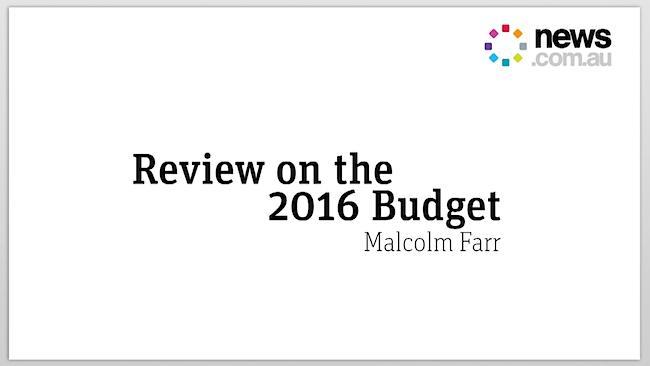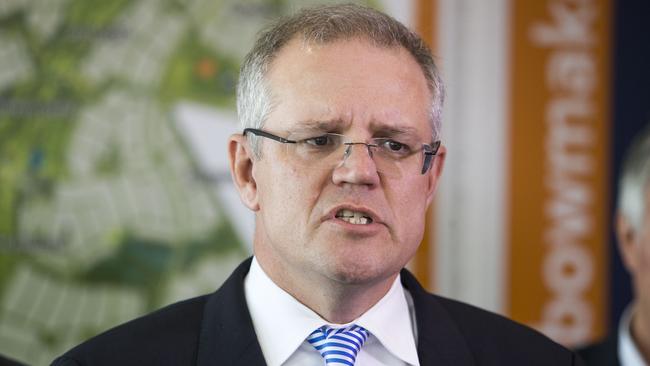Why you need to plan your retirement now
YOU’RE going to need to start planning your retirement earlier after the Government made a dozen changes to superannuation.

Budget 2016
Don't miss out on the headlines from Budget 2016. Followed categories will be added to My News.
PLAYING around with Australia’s superannuation rules has been a popular pastime for both sides of politics for many years, and this years’ Budget takes tinkering to a new level.
A dozen super reforms were announced, which will anger those who say we need a simple, stable system to give people confidence to lock their money away until retirement.
WHAT THE BUDGET MEANS FOR YOU: WINNERS AND LOSERS
THE BUDGET: YOUR FIVE-MINUTE GUIDE
WHAT SCOTT MORRISON’S BUDGET SAYS ABOUT THE GOVERNMENT
The vast majority of super savers won’t suffer from this fresh round of rule changes, which mainly target wealthy Australians who use super to lower their tax bill rather than save for their golden years.

The government says 96 per cent of us won’t be adversely affected but a rethink of some retirement strategies may be needed.
Tighter caps on super contributions mean that retirement planning might need to start earlier to repay the greatest benefit. That’s not a bad thing, because the best way to grow your retirement savings is to have money stashed in super for decades.
One of the Budget’s biggest super changes is introducing a cap of $1.6 million on the amount of money people can transfer into super’s zero-tax retirement phase once they reach age 60.
This prevents future wealthy savers from stashing millions of bucks into a tax-free structure, as they have done in the past. In reality most of us don’t have a chance of getting close to that.
The Association of Superannuation Funds of Australia says the average super balance is $76,424 — about $99,000 for men and $55,000 for women. Balances are bigger for those aged 55 to 64 — at more than $225,000 for men and $170,000 for women — but still nowhere near the new $1.6 million per person limit.

There are some incentives for middle and lower income earners. Relaxing the rules around contributions made for low-income spouses will allow more people to claim a $540 tax offset, while letting people carry forward unused contribution caps for five years will help those returning to work after having time off to raise kids.
Another positive change — a new $500 Low Income Superannuation Tax Offset — simply replaces a similar Labor incentive that the Coalition is letting lapse. No wonder Aussies get confused about our super rules.
This fresh pile of new super rules makes the system fairer and delivers the Government an extra $2.9 billion over four years, but leaves a lingering feeling that an opportunity for bigger and better reforms may have been missed.
Originally published as Why you need to plan your retirement now


